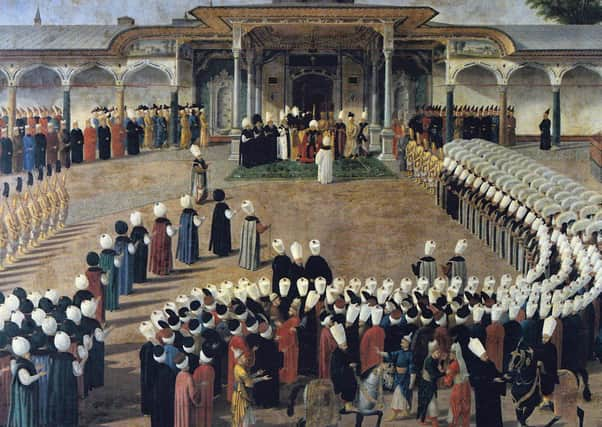The story of mysterious Scot hired to fight smallpox for royalty


The work of Charles Maitland, from Methlick in Aberdeenshire, is barely recognised but it is argued that his process of inoculating people from smallpox by exposing them to the ills of a sufferer was the precursor to Edward Jenner’s vaccination for the disease which devastated mankind for centuries.
Sylvia Valentine, a PhD candidate at the Centre for Scottish Culture at Dundee University, is researching the life of Maitland, who found himself taking his treatment to the British Royal Family after serving as the surgeon to the British Ambassador in Turkey.
Advertisement
Hide AdAdvertisement
Hide AdThere, methods of preventing smallpox were being used by “old wise women” who believed in taking the pus from a sufferer of the less virulent form of the disease, rubbing it on another and covering the area with half a walnut shell in the hope that a blister would form.
If it did, the person would be successfully infected and have lifelong immunity, even to smallpox’s most dangerous strain.
Valentine said: “Everyone talks about Jenner but Maitland should be remembered too.
“He was the first one to put inoculation into practice in England, a method which had been brought to the attention of English physicians a few years previously but been treated as a novelty, something practiced by the ‘old women’ of the Middle East.
Maitland’s position as inoculator extraordinaire was shaped by Lady Mary Wortley Montagu, the wife of the British Ambassador, who asked the Scot to inoculate her son.
A culturally open woman who is known to have donned Turkish dress to enter a harem, she had already lost her brother to the disease. After her son was successfully protected by Maitland, she went on to champion the cause of inoculation back home, with the Scot inoculating her daughter during a smallpox epidemic in London in 1722. By this time, Maitland was getting noticed in high places.
Valentine added: “Lady Mary has connections to London society, she and her family are on the periphery of the Royal Family. Soon the Princess of Wales decides to have her daughters inoculated. For Maitland, this is going to be very big.”
She added that the procedure’s success very much relied on the skill of the inoculator to recognise whether the provider was infected by the milder version, variola minor, rather than variola major, which had a higher mortality rate.
Advertisement
Hide AdAdvertisement
Hide AdOf six inoculations carried out by Maitland in Aberdeenshire in 1722, one patient died. Before the princess – the daughter of the future George II – could be treated, a remarkable experiment was carried out on six condemned prisoners at Newgate Prison, who were promised pardons in return for being inoculated.
The experiment was deemed a success and the prisoners were pardoned. A further experiment was carried out on a group of London orphans, with the inoculations of princesses Amelia and Caroline then going ahead.
Two years later, Maitland was sent to Germany to inoculate their brother, Prince Frederick. “From what I have read from the time, Maitland is certainly anxious about treating the heir to the throne,” said Valentine.
Much mystery still surrounds Maitland, who left a fortune of around £770,000 at the time of his death, with some of his wealth used to support the poor of the parish of Methlick. On his death he was described as “a gentleman justly esteemed by those who knew him”. Valentine and others believe more of us should know of Maitland too.
Comments
Want to join the conversation? Please or to comment on this article.